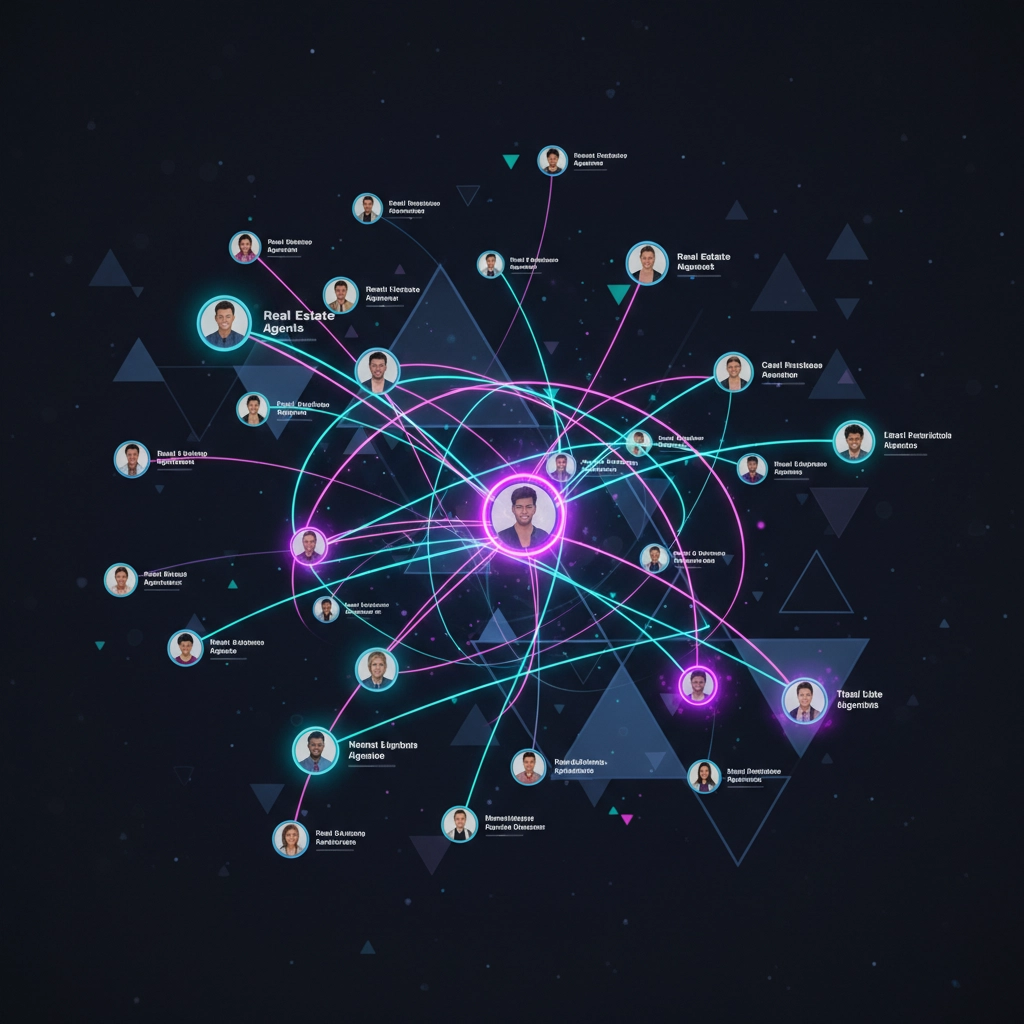AI is reshaping how real estate professionals plan and advance their careers. The technology creates new opportunities, identifies skill gaps, and maps personalized growth paths that were impossible to track manually.
New Career Paths Emerging in Real Estate
The integration of AI creates hybrid roles that combine traditional real estate expertise with technological skills. Property management now requires understanding of automated systems. Sales agents need proficiency in AI-driven lead generation tools. These new positions blend domain knowledge with tech governance responsibilities.
By 2026, over 70% of real estate transactions will involve AI assistance. This shift means career advancement depends on technological fluency alongside traditional real estate knowledge. Professionals who develop dual competencies gain distinct advantages in the marketplace.
The industry shows 15% compound annual growth in AI adoption from 2023-2028. Real estate development organizations identify data and AI technology as key spending priorities. This rapid transformation creates career opportunities for professionals willing to adapt.

AI-Powered Talent Matching Systems
Specialized platforms use AI to connect real estate professionals with career opportunities. These systems analyze skills, experience, and career goals to match candidates with suitable positions. The technology eliminates guesswork from job searches and career planning.
RealPut represents this approach with AI-driven talent matchmaking designed specifically for real estate professionals. The platform connects job seekers with employers using advanced algorithms. This type of system helps professionals discover roles aligned with their skills more efficiently than traditional methods.
Internal mobility platforms transform how companies develop talent. Instead of employees seeking opportunities, AI systems provide personalized recommendations for advancement within organizations. This shift moves from passive career planning to active, data-driven pathway discovery.
Skills Assessment and Gap Analysis
AI analyzes current skills against market demands to identify development opportunities. The technology reviews job performance, client feedback, and transaction data to create comprehensive skill profiles. These insights show exactly where professionals should focus their growth efforts.
Market analysis reveals which skills command higher compensation and better opportunities. AI tracks salary data, job postings, and industry trends to predict future skill demands. This information helps professionals make informed decisions about training investments.
Performance tracking systems monitor progress toward career goals. AI measures key metrics like conversion rates, client satisfaction scores, and deal volume. These measurements provide objective feedback on professional development efforts.

Personalized Learning and Development Plans
AI creates customized training programs based on individual career goals and current skill levels. The systems recommend courses, certifications, and practical experiences needed for advancement. This personalization ensures training time produces maximum career impact.
Adaptive learning platforms adjust content difficulty and pacing based on progress. The technology identifies learning styles and preferences to optimize knowledge retention. This approach reduces time to competency for new skills.
Real-time feedback systems provide immediate coaching during client interactions and transactions. AI monitors communication patterns, negotiation tactics, and relationship building to suggest improvements. This continuous feedback accelerates professional development.
Integration with PWRU Pulse Intelligence
PWRU Pulse Intelligence provides career development insights through comprehensive performance analytics. The platform tracks individual metrics against market benchmarks to identify growth opportunities. Agents see exactly where their performance stands relative to top producers.
The system analyzes transaction patterns, client interactions, and market activities to suggest skill development priorities. This data-driven approach removes guesswork from career planning. Agents receive specific recommendations for improving their market position.
Pulse Intelligence also tracks industry trends and emerging opportunities. The platform alerts agents to new market segments, technology requirements, and competitive advantages. This information helps professionals stay ahead of industry changes.

Competitive Analysis and Positioning
AI monitors competitor activities and market positioning to identify differentiation opportunities. The technology analyzes successful agents’ strategies, marketing approaches, and service offerings. This intelligence reveals gaps in the market that professionals can exploit.
Performance benchmarking compares individual results against market leaders. AI identifies the specific activities and approaches that drive superior results. This analysis provides a roadmap for reaching top performer status.
Market share analysis shows where professionals can expand their influence. AI identifies underserved segments, geographic opportunities, and client demographics with growth potential. This information guides strategic career decisions.
Networking and Relationship Development
AI identifies valuable networking opportunities based on career goals and market position. The technology analyzes industry connections, referral patterns, and influence networks. This insight helps professionals build strategic relationships efficiently.
Relationship tracking systems monitor client interactions and referral sources. AI identifies which relationships produce the most valuable opportunities and revenue. This data helps professionals prioritize their networking efforts.
Communication optimization tools suggest the best approaches for different relationship types. AI analyzes successful interaction patterns to recommend timing, messaging, and follow-up strategies. This guidance improves relationship building effectiveness.

Future Skill Requirements
AI predicts which skills will become essential for real estate success. The technology analyzes job market trends, technology adoption rates, and industry evolution patterns. This forecasting helps professionals prepare for future requirements.
Emerging technology skills gain importance as the industry evolves. Virtual reality property tours, blockchain transactions, and automated marketing systems require new competencies. Early adoption of these skills creates competitive advantages.
Soft skills remain crucial even with AI adoption. Client relationship management, negotiation abilities, and market insight cannot be fully automated. The most successful professionals combine technical proficiency with strong interpersonal skills.
Implementation Strategies
Start with skills assessment to identify current strengths and development needs. Use AI tools to benchmark performance against market standards. This baseline measurement guides development priorities.
Create specific development goals with measurable outcomes. AI tracking systems monitor progress and provide accountability. Regular assessment ensures development efforts stay on track.
Integrate new skills gradually into daily workflows. Practice with AI tools while maintaining existing client service standards. This approach minimizes disruption while building competency.

Measuring Career Progress
AI tracks multiple career advancement indicators beyond just sales volume. The technology monitors client satisfaction, referral rates, market share growth, and professional recognition. This comprehensive view shows true career progress.
Compensation analysis reveals whether career development translates to financial gains. AI compares earnings growth to market standards and peer performance. This data validates development investment decisions.
Long-term trend analysis shows career trajectory over time. AI identifies patterns and predicts future outcomes based on current development activities. This forecasting helps professionals make strategic career decisions.
Getting Started with AI Career Development
Begin by evaluating current AI tools and their career development potential. Many platforms provide performance analytics and skill assessment features. Start with PWRU Pulse Intelligence to get comprehensive career development insights and personalized growth recommendations.
Focus on one skill area at a time for maximum impact. Master each new competency before moving to the next development target. This focused approach produces better results than scattered efforts.
Connect with other professionals using AI for career advancement. Share experiences and learn from their implementations. This collaborative approach accelerates learning and reduces implementation challenges.
AI for career pathing transforms how real estate professionals plan and execute their growth strategies. The technology provides data-driven insights, personalized development plans, and competitive intelligence that was previously unavailable. Professionals who embrace these tools position themselves for long-term success in an evolving industry.





